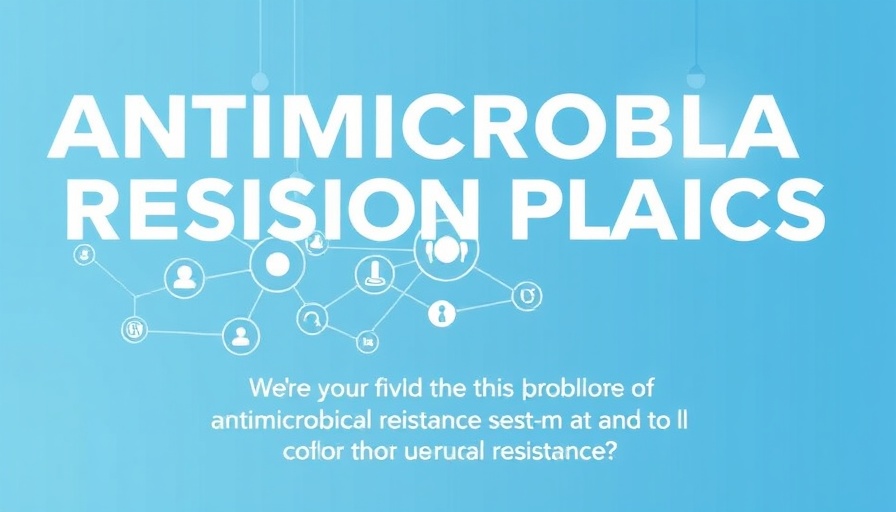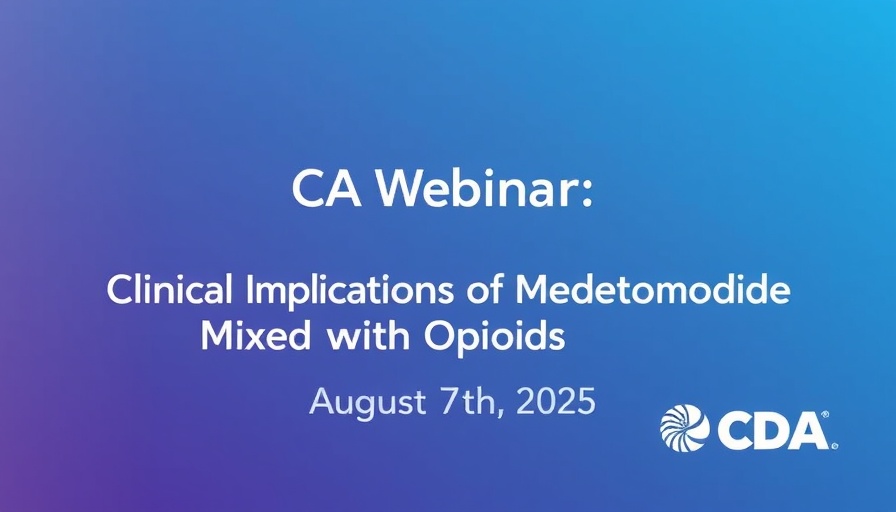
Understanding Substance Use in Adolescents: A Crucial Issue
Adolescence represents a pivotal stage in human development, especially concerning mental and physical health. Research shows that early engagement in substance use can dramatically alter the trajectory of a young person’s life, inflicting damages that may last a lifetime. As healthcare professionals, recognizing the implications of substance use is essential not only to mitigate immediate risks but also to foster healthier futures for our youth.
In ENGAGE: Evidence-Based Strategies to Prevent Youth Substance Use, the discussion dives into critical prevention methods outlined by the CDC, exploring key insights that sparked a deeper analysis on our end.
Introducing ENGAGE: A Comprehensive Strategy
The Centers for Disease Control and Prevention (CDC) has introduced the ENGAGE initiative, aimed at equipping communities with evidence-based strategies to prevent youth substance use. This guide serves as a resource for healthcare providers, educators, and community organizations dedicated to addressing this pressing issue.
Six Core Strategies: A Roadmap for Prevention
ENGAGE outlines six essential strategies, each serving as a cornerstone for effective intervention:
- Enhance Knowledge and Skills: Educating youth and families about the risks associated with substance use.
- Nurture Family Environments: Fostering supportive home dynamics that discourage substance use.
- Access to Resources: Providing youth with engagement opportunities and healthy activities that deter substance use.
- Protective Community Environments: Amplifying initiatives that create safe spaces in communities, supporting drug-free lifestyles.
- Lessen Harms: Implementing practices to mitigate both immediate and long-term risks associated with substance use.
- Healthcare Provider Engagement: Encouraging active participation from health systems and providers in youth prevention programs.
David's Story: A Personal Narrative
To illustrate the real-world impact of these strategies, consider David, a young man who faced significant challenges due to early substance use. With support from community programs inspired by the ENGAGE initiative, he navigated a path toward recovery and personal growth. His journey underscores the importance of these preventive measures, showcasing that with the right support, change is possible.
The Role of Healthcare Professionals
As frontline defenders in the battle against youth substance use, healthcare professionals play a critical role. By integrating ENGAGE principles into everyday practice, physicians and nurses can support families, guide decision-making, and foster an environment conducive to healthy choices. Your engagement can make a life-saving difference.
Taking Action: Why Is This Important?
It’s essential to understand that youth substance use is not an isolated issue; it’s a community concern that requires collective efforts. By advocating for and implementing strategies like those presented in ENGAGE, healthcare professionals can contribute significantly to reducing youth substance use and its associated risks. For more information and resources, healthcare professionals can visit cdc.gov/ENGAGE.
 Add Row
Add Row  Add
Add 




Write A Comment